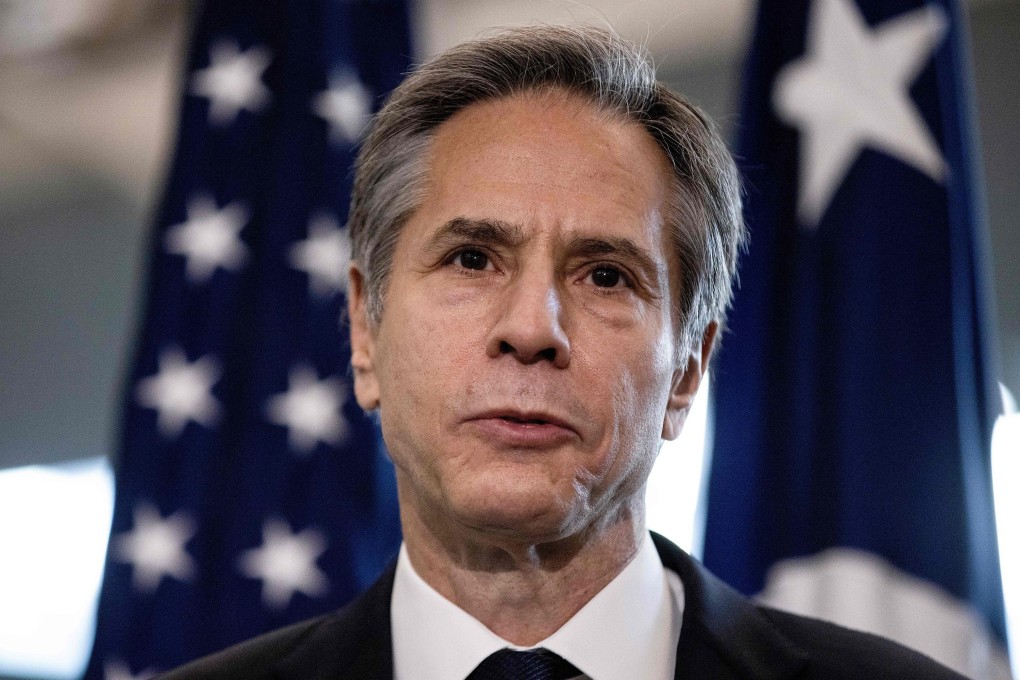Advertisement
US and Japan warn against China’s ‘coercion and destabilising behaviour’
- Secretary of State Antony Blinken blasts Beijing for eroding autonomy in Hong Kong, rights abuses in Xinjiang and violating international law in South China Sea
- Singling out of China at meeting of US and Japanese defence and foreign ministers in Tokyo raises heat ahead of US-China talks in Alaska
Reading Time:4 minutes
Why you can trust SCMP
99+

The United States and Japan warned China against “coercion and aggression” on Tuesday after their defence and foreign ministers met in Tokyo, on the first overseas visit by members of President Joe Biden’s cabinet.
In a joint statement, the ministers said that “the United States and Japan acknowledged that China’s behaviour, where inconsistent with the existing international order, presents political, economic, military and technological challenges”. They added that they were “committed to opposing coercion and destabilising behaviour towards others in the region”.
Later at a joint press conference, US Secretary of State Antony Blinken cited China’s “coercion and aggression to systematically erode autonomy in Hong Kong, undercut democracy in Taiwan, abuse human rights in Xinjiang and Tibet, and assert maritime claims in the South China Sea that violate international law.”

01:12
US Secretary of State Blinken meets Japanese prime minister Suga to ‘reaffirm US-Japan alliance’
US Secretary of State Blinken meets Japanese prime minister Suga to ‘reaffirm US-Japan alliance’
The meeting between the four men follows a virtual summit last week of the leaders of the US, Japan, Australia and India – the so-called Quad alliance of democracies that is aimed at countering China’s rising influence in the Indo-Pacific region.
Advertisement
Both events are seen by analysts as part of a wider push by the Biden administration to shore up Washington’s alliances in the region and are likely to raise the temperature ahead of a key US-China meeting in Alaska on Thursday.
Blinken at the press conference said Washington and Tokyo were united in a vision of a free and open Indo-Pacific, where countries followed rules and resolved discussions peacefully.
Advertisement
“In particular we will push back if necessary when China uses coercion or aggression to get its way.”
Advertisement
Select Voice
Select Speed
1.00x